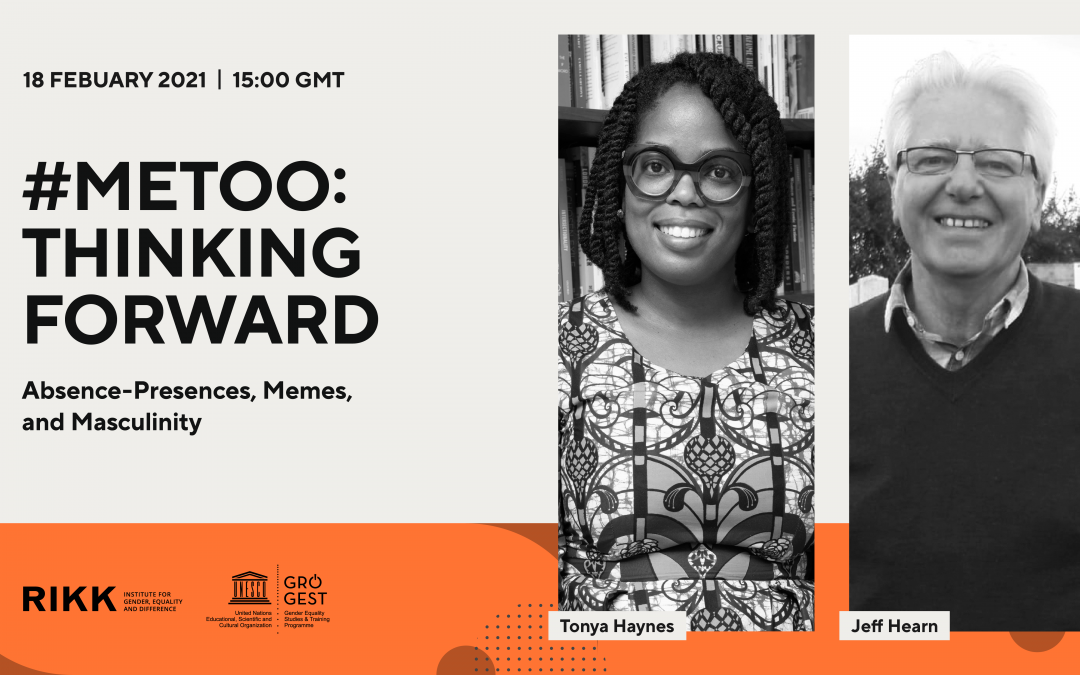#MeToo: Thinking Ahead is the topic of the RIKK – Institute for Gender, Equality and Difference and Gender Equality Studies and Training (GEST) Programme conversation series in spring 2021. The series focuses on #MeToo, its gains as well as the challenges that remain in the fight against harassment, discrimination, and violence. The series builds upon two recent books published on the movement, firstly an Icelandic issue of Fléttur, RIKK’s book series, and secondly The Routledge Handbook of the Politics of the #MeToo Movement, edited by Irma Erlingsdóttir, Director of RIKK and GEST, and Giti Chandra, Research Specialist at GEST.
The sessions are held on Zoom (https://eu01web.zoom.us/j/65793909733) and will be live-streamed on Facebook. Recordings of the sessions will be made available on RIKK’s website and the Youtube-Channel of the School of Humanities and GEST’s Youtube-Channel after the event.
The second session in the series brings together two scholars of critical studies on men and masculinities, Tonya Haynes and Jeff Hearn. Tonya Haynes is Lecturer, Interim Head and Coordinator of Graduate Programmes at the Institute for Gender and Development Studies, Nita Barrow Unit, at the University of the West Indies and Jeff Hearn is Senior Professor of Gender Studies at Örebro University. Their conversation will cover some of the implications of the #MeToo Movement and discussions around it for men, and what their social media presence signifies. The event takes place on Thursday 18 February at 15.00-16.00 GMT.
Tonya Haynes examines Caribbean men’s meme-making and online practices of content creation and circulation in relation to “red woman” memes, not for what they tell us about meanings of gender and mixed-racedness in the Caribbean, but rather for what they reveal and obscure in men’s online performances of masculinity, misogyny and Caribbeanness in the age of #MeToo and #LifeInLeggings.
Jeff Hearn looks at men as an absence presence in #MeToo, generally absent from the speaking out, but all too present, in statements, allusions and effects. Men are the absent cause of #MeToo, who then become the object of talk, writing, accusation, and action: #MeToo stems from men’s violences and abuse. The question then is what is to be done by and about men and masculinities?
